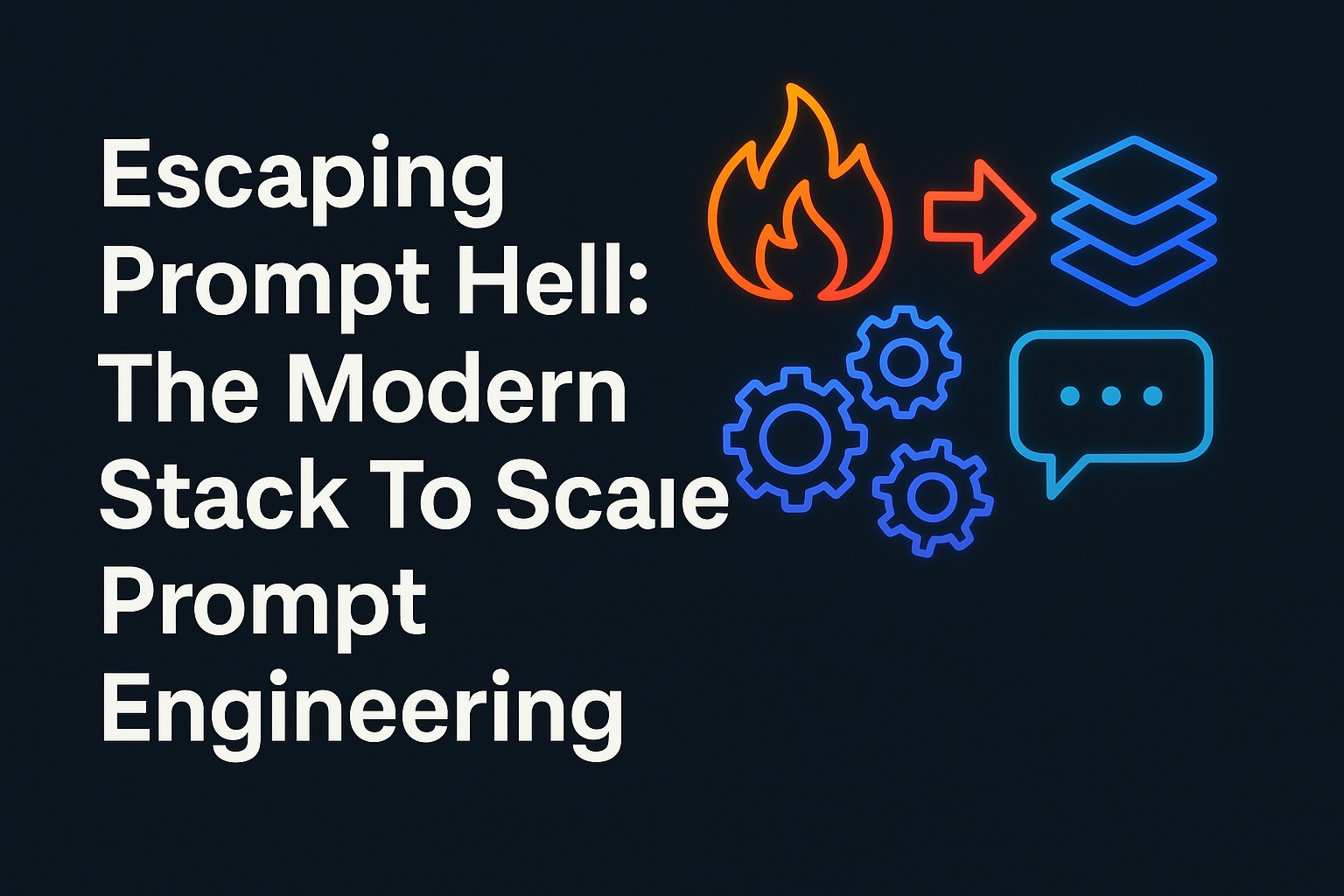Open Source News
Medium
224

Image Credit: Medium
I Found This Buried on Page 10 of Google — and It’s a Game-Changer
- Google is known for tracking and storing user data, leading to personalized ads and curated search results.
- Searx is a privacy-focused meta-search engine that aggregates results from various search engines, offering a diverse range of sources.
- Users can experience a mix of search results, including those from Bing, Qwant, Reddit, and more, creating a unique and unfiltered browsing experience.
- Searx prioritizes user privacy by not logging IP addresses or search history, enhancing anonymity while browsing.
- SearxNG, a successor to the original Searx project, offers faster performance, enhanced features, and support for a wide range of search services.
- The meta-search capability of Searx allows users to access a variety of content from different sources simultaneously, promoting a more comprehensive search experience.
- Unlike Google, Searx enables users to customize their search preferences, select preferred search engines, and maintain full control over their search queries.
- While Searx may have slower load times and occasional duplicate results, its emphasis on privacy and diversity in search results makes it a valuable alternative to traditional search engines.
- By offering complete privacy, diverse result sources, and extensive customization options, Searx challenges the dominance of mainstream search engines like Google.
- Searx's open-source nature, lack of tracking, and active developer community contribute to its appeal as a privacy-conscious and user-centric search tool.
Read Full Article
13 Likes
Hackernoon
204

Image Credit: Hackernoon
The HackerNoon Newsletter: Testing LLMs on Solving Leetcode Problems in 2025 (4/8/2025)
- Testing LLMs on Solving Leetcode Problems in 2025 - Large-scale LLMs were tested on solving Leetcode algorithmic problems.
- Returns are Rising Fast — and Not Enough Tools are Focused on Stopping Them at the Source - In 2024, nearly one in five online purchases ended up being returned.
- Escape Prompt Hell With These 8 Must-have Open-source Tools - Discover 8 powerful tools transforming prompt engineering from trial-and-error into scalable systems.
- Can GPT Outsmart Social Media Regulations? Inside an AI Language Evolution Experiment - Learn how Large Language Models creatively adapt language strategies under supervision.
Read Full Article
10 Likes
Sdtimes
297

Image Credit: Sdtimes
Report: Keeping up with patches is the number one challenge when using open source software
- The most challenging aspect of utilizing open source projects is keeping up with updates and patches, according to a new report.
- Over half of the respondents ranked keeping software updated, meeting security and compliance requirements, and maintaining end-of-life (EOL) versions as the top challenges.
- CentOS 7 reaching EOL highlighted the difficulty organizations face in staying on the latest versions and accessing security updates.
- The report also revealed that cloud and container technologies, databases and data technologies, and programming languages and frameworks are the top areas where open source software is being used.
Read Full Article
17 Likes
Hackernoon
155

Image Credit: Hackernoon
Escape Prompt Hell With These 8 Must-have Open-source Tools
- Prompt engineering has evolved from creativity to a more systematic approach resembling software development, requiring tools to optimize prompts systematically.
- AdalFlow is a PyTorch-inspired framework that declaratively builds and optimizes LLM workflows, focusing on latency, performance, and cost optimizations.
- Ape, by Weavel, helps test, debug, and improve LLM applications by providing structured feedback on agent behavior, removing the need for manual prompt tuning.
- AutoRAG assists in evaluating and optimizing RAG pipelines automatically using plug-and-play modules and pipeline search functionalities.
- DSPy, from Stanford NLP, treats LLM components as programmable modules, facilitating structured prompt engineering workflow with auto-tuning and reproducible pipelines.
- Zenbase Core focuses on turning research ideas into production tools, emphasizing automatic prompt optimization and reliability for software engineering workflows.
- AutoPrompt automates improving prompt performance based on real data, making prompt writing a measurable and scalable process.
- EvoPrompt, backed by Microsoft, uses evolutionary algorithms to optimize prompts, reframing prompt crafting as a population-based search problem.
- Promptimizer is an experimental Python library for optimizing prompts using feedback loops, ensuring systematic prompt quality improvement.
- These tools transform prompt engineering into a disciplined practice with benefits like cost control, speed, accuracy improvements, and enhanced governance.
- The future of LLM applications lies in scalable infrastructure, moving from intuition-based methods to reliable engineering practices for better prompts and systems.
Read Full Article
9 Likes
Discover more
- Programming News
- Software News
- Web Design
- Devops News
- Databases
- Cloud News
- Product Management News
- Operating Systems News
- Agile Methodology News
- Computer Engineering
- Startup News
- Cryptocurrency News
- Technology News
- Blockchain News
- Data Science News
- AR News
- Apple News
- Cyber Security News
- Leadership News
- Gaming News
- Automobiles News
Medium
311
Image Credit: Medium
AI Society: How Networks of Specialized Models Could Shape the Future of Artificial Intelligence
- As Large Language Models (LLMs) continue to scale, challenges of extreme model scaling are emerging, leading to questions about sustainability.
- An alternative approach, known as 'AI Society,' suggests using networks of specialized AI models working together like human societies for more efficient AI advancement.
- Specialized AI models under 100B parameters each offer advantages over larger monolithic models, including better performance in specific domains and more efficient resource utilization.
- The 'AI Society' approach involves a coordinating system that routes queries to specialized models, exemplified by an implementation called 'Frida,' a home assistant system.
- Frida consists of orchestrated specialized systems with clear communication protocols, enabling efficient task delegation and reliable outputs.
- The modular design of Frida allows for extensions with new capabilities without disrupting existing functionality, in contrast to monolithic models requiring expensive retraining.
- The AI Society model aligns with theories in cognitive science and offers potential implications for achieving more general artificial intelligence through coordination of specialized intelligences.
- By mimicking the modular architecture of human cognition, AI societies may address safety concerns and be more aligned with human values.
- This approach democratizes advanced AI capabilities by using smaller open-source models that can run on consumer hardware, making AI more accessible and affordable.
- Building better societies of AI systems with improved communication and coordination between specialized components is seen as the next frontier in AI development, with potential benefits for all contributors.
- Shifting the focus from scaling up models to designing efficient networks of specialized AI components may lead to more impactful advancements in artificial intelligence.
Read Full Article
18 Likes
Hackernoon
417

Image Credit: Hackernoon
To Hit $1T TVL, Ethereum Must Play the Ace
- Protecting intellectual property is crucial for business survival, as seen in the hardware and algorithm design industries.
- Openly sharing development plans in the blockchain space allows competitors to replicate strategies, leading to fragmentation.
- Fragmentation in the blockchain market poses challenges for established giants like Bitcoin and Ethereum.
- Newer projects with larger initial funding can front-run leaders by leveraging open-source development.
- The transparency of blockchain protocols threatens the market share and growth potential of established chains.
- Large financial institutions benefit from open-source research without significant contribution back to the community.
- Implementing more competitive and incentivized models for accessing research data could benefit the ecosystem.
- Creating knowledge marketplaces based on contributions could enhance collaboration and development in open-source projects.
- Prioritizing community involvement and trust is crucial for the growth and sustainability of blockchain ecosystems like Ethereum.
- Balancing openness with strategic data sharing and fostering a committed community can lead to the success of blockchain projects.
Read Full Article
25 Likes
Siliconangle
449

Image Credit: Siliconangle
PyannoteAI raises $9M for its speech processing AI
- French startup pyannoteAI raises $9 million in funding to enhance its speech processing AI.
- The company's open-source AI toolkit is downloaded over 45 million times per month and has an installed base of over 100,000 developers.
- pyannoteAI's commercial offering is twice as fast as the open-source edition and provides a 20% accuracy increase in distinguishing speakers in audio recordings.
- The company plans to invest the funding in product development initiatives, including features to split an audio file into multiple files featuring only a single speaker and enabling AI models to run on a broader range of devices.
Read Full Article
27 Likes
Gizchina
421

Image Credit: Gizchina
Meta Llama 4 Shakes Up the AI Landscape with Open-Source MoE Models
- Meta released the Llama 4 model, an open-source MoE architecture that will redefine the limits of open-source AI.
- The Llama 4 lineup includes three key models: the Scout, the Maverick, and the Behemoth.
- Llama 4 models offer computational efficiency with advanced features and competitive pricing, setting them apart from rivals like GPT-4o and Gemini 2.0.
- The Llama 4 Maverick model leads in coding, reasoning, and creative writing, and supports multiple languages, putting pressure on rivals like Google and OpenAI.
Read Full Article
25 Likes
Unite
10.9k

Image Credit: Unite
Open-Source AI Strikes Back With Meta’s Llama 4
- The AI world has shifted towards proprietary systems, but open-source AI is making a comeback with Meta's Llama 4 models.
- Llama 4 competes with AI heavyweights like GPT-4o, Claude, and Gemini, offering open-weight alternatives with impressive technical specs.
- With models like Llama 4 Scout and Maverick utilizing a MoE design, they deliver high performance and unique features such as a 10 million token context window.
- Meta has made Llama 4 immediately available for download under the Llama 4 Community License, allowing customization and deployment by developers and companies.
Read Full Article
12 Likes
Medium
100

Image Credit: Medium
I Quit Google for a Week — Here's What the Internet Looks Like Without It
- A person quits using all Google services for a week to see what life is like without it.
- Initial challenge in breaking the muscle memory and finding alternative services.
- The experience of using non-Google alternatives was less personalized and more inconvenient.
- Realization that trading convenience for awareness can be a valuable upgrade.
Read Full Article
6 Likes
Marktechpost
91

Reducto AI Released RolmOCR: A SoTA OCR Model Built on Qwen 2.5 VL, Fully Open-Source and Apache 2.0 Licensed for Advanced Document Understanding
- Reducto AI has released RolmOCR, a state-of-the-art OCR model based on Qwen2.5-VL.
- RolmOCR goes beyond traditional OCR systems by incorporating visual layout and linguistic content understanding.
- It can recognize printed and handwritten characters across multiple languages and interpret the structural layout of documents.
- RolmOCR enables automated processing of forms, permits, contracts, handwritten notes, invoices, and more.
Read Full Article
5 Likes
Marktechpost
220

Meta AI Just Released Llama 4 Scout and Llama 4 Maverick: The First Set of Llama 4 Models
- Meta AI has released its latest generation multimodal models, Llama 4 Scout and Llama 4 Maverick.
- Llama 4 Scout is a 17-billion-active-parameter model with extensive context window for effective long-form document processing.
- Llama 4 Maverick incorporates 128 expert modules for precise alignment between textual prompts and visual elements.
- Meta AI's ongoing commitment to innovation and accessibility is exemplified in the release of Llama 4 models.
Read Full Article
13 Likes
Hackernoon
13

Image Credit: Hackernoon
You Built It. Now Get Paid. Ethereum’s Devansh Mehta on Fixing Open Source Funding
- Devansh Mehta, of the Ethereum Foundation, is working on revolutionizing how open source work gets funded using blockchain and machine learning in web3.
- Mehta was initially intrigued by blockchain as a public database and smart contracts, later delving into its architecture's unique openness.
- His interest in web3 stemmed from combating the practice of double selling impact in the nonprofit sector and ensuring real impact creation over marketing.
- Mehta's journey through web3 began with quadratic funding, leading him to explore decentralized autonomous organizations and online governance.
- He emphasizes the importance of properly funding open source projects, especially those that create value without direct revenue generation.
- Mehta's deep funding model aims to allocate funds to open source projects based on a dependency graph and machine learning predictions.
- By collaborating with various tools and frameworks, such as Open Source Observer and Pairwise, deep funding enables faster experimentation and funding mechanisms.
- Mehta highlights the importance of funding models like quadratic funding and retrospective public goods funding (RetroPGF) as more inclusive and community-driven approaches.
- He envisions a future where funding mechanisms in web3 do not rely on applications, with emphasis on rewarding those creating real value automatically.
- Mehta's role at the Ethereum Foundation focuses on running machine learning competitions to make funding smarter and support the development of deepfunding.org.
Read Full Article
Like
Marktechpost
137

NVIDIA AI Released AgentIQ: An Open-Source Library for Efficiently Connecting and Optimizing Teams of AI Agents
- NVIDIA introduces AgentIQ, a Python library unifying agentic workflows across frameworks, memory systems, and data sources to address challenges in AI system development and deployment.
- AgentIQ enhances existing tools, promoting composability, observability, and reusability in AI system design.
- Key features of AgentIQ include framework agnostic design, reusability, rapid development, profiling, observability integration, evaluation system, user interface, and MCP compatibility.
- It complements existing frameworks, focusing on function-call-based architecture for multi-agent workflows, while connecting agents and tools from different ecosystems.
- AgentIQ supports various enterprise use cases, enabling seamless integration, profiling, and evaluation of complex AI workflows.
- Installation of AgentIQ is straightforward, supporting Ubuntu and Linux-based distributions with plugins for added functionalities like profiling and language chaining.
- The library empowers development teams to build AI applications without compatibility concerns, performance bottlenecks, or evaluation issues.
- AgentIQ's modular and observable design, profiling capabilities, and popular framework support make it a crucial tool for AI developers.
- With future updates planned, AgentIQ aims to become a foundational layer in enterprise agent development, offering scalability and efficiency in AI-driven workflows.
- AgentIQ serves as a bridge for teams looking to optimize AI systems at scale, emphasizing efficient execution and monitoring.
Read Full Article
8 Likes
Hackernoon
174

Image Credit: Hackernoon
Mutation Testing: How Does it Work in Rust?
- Mutation testing in Rust can be done using libraries like cargo-mutants and mutagen.
- cargo-mutants is the actively maintained library for mutation testing in Rust.
- A sample code in Rust is provided to demonstrate mutation testing with cargo-mutants.
- An issue was found in cargo-mutants where mutating < to <= was not detected, and the code was updated and a Pull Request was made.
Read Full Article
10 Likes
For uninterrupted reading, download the app